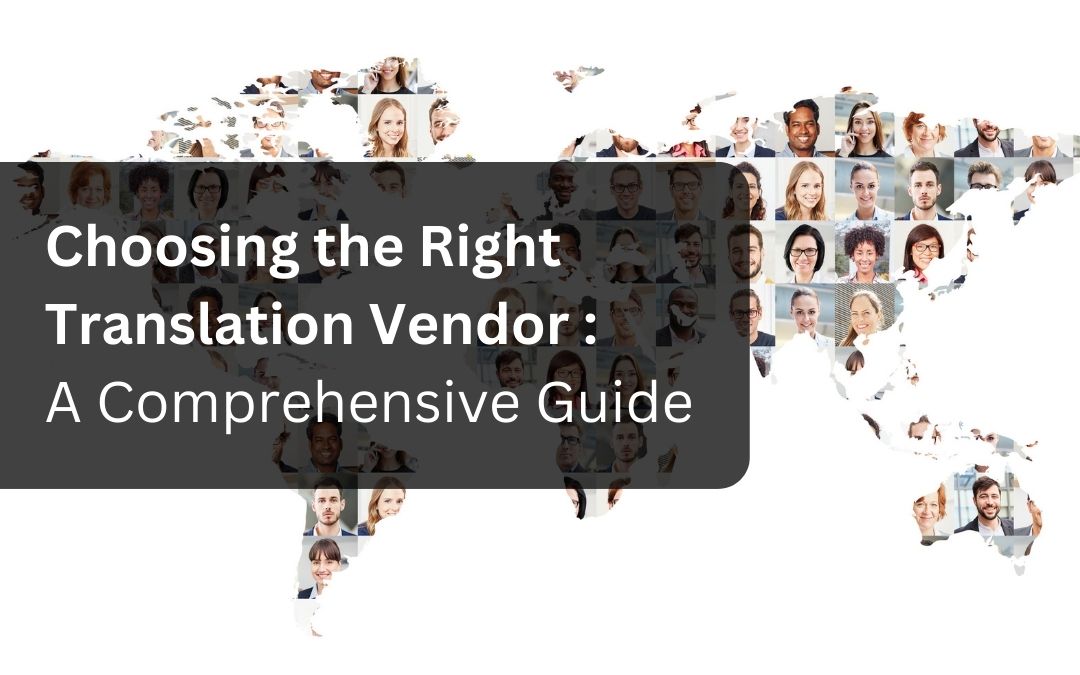In today’s globalized world, businesses are expanding their reach across borders, and the demand for accurate translation services has never been higher. Whether you’re launching a product in a new market, localizing your website, or simply communicating with international partners, choosing the right translation vendor is crucial. This guide will walk you through the essential factors to consider when making this important decision.
1. Determine Your Needs: Before diving into the search, it’s essential to understand what you need. Are you looking for a one-time translation for a specific project, or do you need ongoing services? Do you require specialized translations, such as medical or legal documents? Knowing your requirements will help narrow down potential vendors.
2. Experience and Expertise: A vendor’s experience in the industry speaks volumes. Look for companies that have been in the business for several years and have a proven track record. Additionally, ensure that they have expertise in your specific sector. For instance, translating a medical journal requires different skills than localizing a video game.
3. Quality Assurance: Quality is paramount in translation. Ask potential vendors about their quality assurance processes. Many reputable companies employ a two-step process: translation by one expert and proofreading by another. This ensures that the final product is both accurate and reads naturally in the target language.
4. Cultural Sensitivity: Beyond mere words, effective translation captures the nuances and cultural context of the original content. The right vendor will have translators who are native speakers of the target language and understand the cultural intricacies that can make or break a translation.
5. Technology and Tools: Modern translation isn’t just about human expertise; it’s also about leveraging technology. Some vendors use translation memory tools that store translated segments, ensuring consistency across projects and reducing costs. Others might employ machine translation with human post-editing. Understanding the tools a vendor uses can give you insight into their efficiency and consistency.
6. Turnaround Time: In the fast-paced business world, time is often of the essence. Discuss your project’s timeline with potential vendors. While it’s essential to give translators adequate time to ensure quality, a vendor should also be capable of meeting reasonable deadlines.
7. Confidentiality: If you’re translating sensitive business documents, confidentiality is a must. Ensure that the vendor has strict confidentiality policies in place and is willing to sign non-disclosure agreements if necessary.
8. Customer Reviews and Testimonials: One of the best ways to gauge a vendor’s reliability and quality is by hearing from their past clients. Look for reviews and testimonials, and don’t hesitate to ask the vendor for references. Real-world feedback can provide invaluable insights.
9. Pricing: While cost shouldn’t be the only determining factor, it’s undoubtedly important. Get detailed quotes from potential vendors and understand what’s included. Be wary of prices that seem too good to be true; they often come at the expense of quality.
10. Flexibility and Customer Service: The translation process can be dynamic, with changes and adjustments along the way. Choose a vendor that’s flexible and responsive to your needs. Excellent customer service, with open lines of communication, can make the process smoother and more efficient.
Conclusion:
Choosing the right translation vendor is a critical decision that can impact your business’s success in international markets. By considering the factors outlined above, you can ensure that you partner with a vendor that delivers accurate, high-quality translations that resonate with your target audience. Remember, in translation, as in all business endeavors, you often get what you pay for. Invest in quality, and it will pay dividends in the long run.

